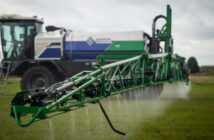The NFU is urging Defra and its agencies to take a ‘common-sense approach’ to managing the effects of consistent wet weather and flooding for many British farmers, with many fields sitting under water after the country saw rainfall levels 98% higher than last year1.
Prolonged wet weather is having significant impacts on farming businesses across the country, with many arable farmers unable to finish harvesting and experiencing a severe delay to drilling winter cereals. Livestock farmers are also being forced to bring in livestock weeks earlier than usual, leading to a longer winter period.
The NFU has an ongoing dialogue with Defra, the RPA and the Environment Agency to encourage flexibility and ease the problems of cash flow, and the RPA has been asked to ensure affected farmers receive their BPS payments as early as possible when the payment window opens next month.
The RPA has also been asked to consider this weather event as ‘force majeure’ for farmers in agri-environment schemes. Agreement holders are being urged to contact the RPA if they are prevented from complying with their scheme obligations as a result of continued weather pressures2.
NFU deputy president Guy Smith said: “The intense and sustained period of rainfall we have experienced recently has meant farmers and growers have not been able to carry out work on wet and flooded land. This is hitting particularly hard for arable farmers who cannot finish their harvest or start drilling winter cereals.
“I’ve heard from members across the country who are increasingly worried about the impacts this will have on their businesses next year, particularly increased financial pressure.
“That’s why it is absolutely critical that Defra takes a common-sense approach to how it manages this situation, particularly ensuring affected farmers are paid promptly at the start of the payment window next month.
“It’s at times like these that Defra needs to remember it is a supportive department for the nation’s food producers, not just a regulatory one. Our future domestic agricultural policy must recognise this and ensure there are measures for farm businesses to manage volatility, particularly in the face of increasingly unpredictable weather.”




